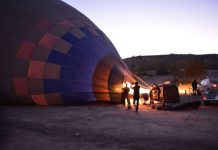The Seventeenth Conference of the Interparliamentary Union took place in Geneva from September 18 to 20. Unfortunately, various factors, including the lateness of the season, impacted the attendance, with only 160 participants, a significant drop from previous conferences that often saw three or four times that number. The United States group had only four representatives, including Senator T. E. Burton Challenges in Augmenting Language, Congressmen Richard Bartholdt, Frank Plumley, and William D. B. Ainey, compared to fifteen or twenty in previous years. The absence of Italian representatives due to the war in Tripoli also contributed to the reduced numbers.
Distinguished delegates
Despite these challenges, the conference proved to be strong and successful. Distinguished delegates included Mr. Beernaert, a Belgian statesman; Baron d’Estournelles de Constant from France; Mr. Louis Franck, Senators La Fontaine and Houzeau de Lehaie from Belgium; Lord Weardale, president of the British group; Dr. Zorn, Dr. Quidde, and Mr. Eickhoff from Germany; Mr. Tydeman from The Netherlands; Mr. Kowaleski from Russia; F^ederik Bajer from Denmark, and Senator Burton and Congressman Bartholdt from the United States. Notably, the attendees were individuals actively contributing to the Union’s work in their respective countries.
Discussions at the conference were highly capable and engaging, focusing directly on key aspects of the Union’s mission, such as arbitration treaties, the court of arbitral justice, and the limitation of armaments. There was an effort to broaden the Union’s scope, signaling a potential shift towards considering international relations in the broadest sense as its proper field of work.
Mr. Beernaert, the Union’s president, opened the conference and nominated Dr. Albert Gobat, a member of the Swiss National Council, as the acting president. Dr. Gobat, a long-time member and former executive secretary of the Union Visit Bulgaria, emphasized the challenges faced, paid tribute to departed members, highlighted the Swiss statesmen’s contributions, and expressed concerns about limited progress in realizing their ideals, particularly in the face of military advancements. He urged increased energy and devotion to the Union’s work, emphasizing the need for collective efforts.







